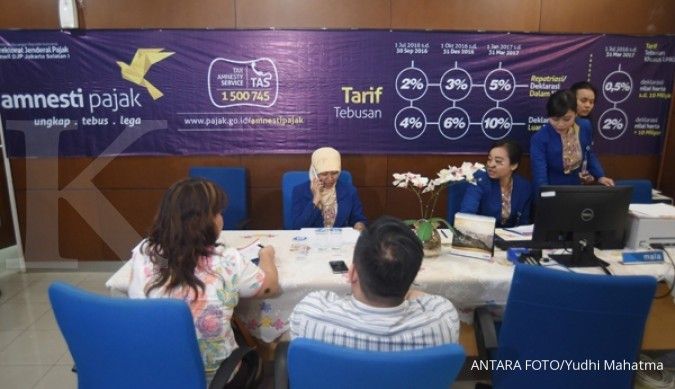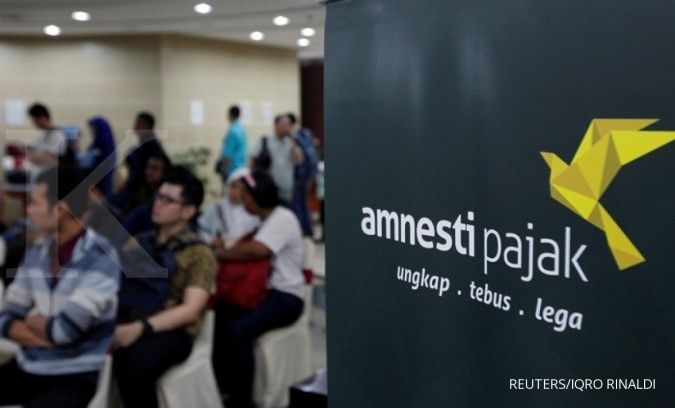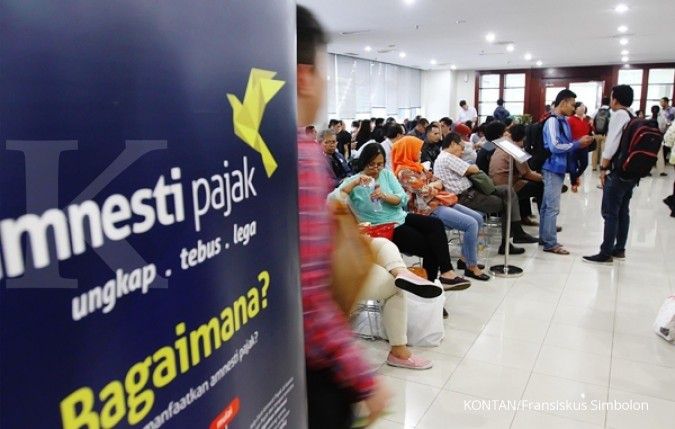Jakarta. Tax amnesty program has potential to increase tax ratio to Gross Domestic Product (GDP). Directorate General of Taxation is optimistic that the tax ratio to GDP will increase from 11% in this year to 14% in 2017.
Head of Sub Directorate for Billing Affairs at Directorate General of Taxation Dodi Syamsu Hidayat said that the increase in tax ratio is not only driven by the redemption fees revenues. “We expect to generate new tax objects from declared and repatriated assets”, said Dodi.
The decreases in economic growth and revenues reflect that tax ratio will be stagnant, or even decreasing. During the last six years, Indonesia’s tax ratio was constant at the level of 11%-12%.
Data from Director General of Taxation show that government has collected IDR93.8 trillion of redemption fees of IDR97.3 trillion of the totals of tax amnesty revenues. Meanwhile, Directorate General of Taxation also recorded an IDR3,767.4 trillion of declared assets.
To date, 37.98% of the declared assets consist of cash and cash equivalent assets, while the rests are investment and securities (28.03%), land, building, and immovable property (15.68%), as well as precious metals, precious goods, and other movable assets (3.92%).
Directorate General of Taxation will audit the tax amnesty assets to generate new tax objects immediately.
The increases in tax basis and tax ratio are the main targets of tax amnesty program. According to Minister of Finance Sri Mulyani, Indonesia’s tax basis and tax ratio are lower compared to neighbouring countries. This year, Indonesia’s tax rate stands at the level of below 11%, while other South East Asian countries recorded above 14% of tax ratio.
Financial notes of 2017 State Budget Plan mentioned that Indonesia recorded the highest tax ratio at the level of 13.9% in 2012, while 2016 Revised State Budget recorded a 12.9% of tax ratio to GDP. This year, government targets to achieve a 13%-14% of tax ratio.
Member of Commissioner Board of Financial Service Authority (FSA) Nurhaida expects that declared investment and securities may become the new tax basis in the upcoming years.
Nurhaida expects that the current declared assets, which amounted to IDR141 trillion, still have potential to increase. To date, 95% of the current declared assets are fixed-income mutual funds (RDPT).
(MUHAMMAD FARID/Translator)
/2016/10/03/1718727670p.jpg)












